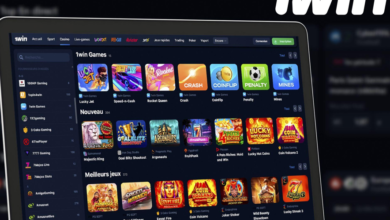Study Artificial Intelligence For A Smarter Future

Introduction To AI Education
As technology rapidly advances, the need to study learn artificial intelligence online is more important than ever. AI is transforming how industries operate, how people work, and how decisions are made. From virtual assistants to self-driving cars, the impact of AI is visible everywhere. For students and professionals who want to remain competitive in the digital age, understanding the fundamentals of AI is no longer optional — it’s essential.
What Is Artificial Intelligence
Artificial intelligence refers to machines or systems that can perform tasks typically requiring human intelligence. These tasks include reasoning, learning, problem-solving, and understanding natural language. When people choose to study artificial intelligence, they dive into a field that combines computer science, data analysis, machine learning, and cognitive science. AI allows systems to adapt, improve over time, and respond intelligently to different situations.
Why You Should Study AI
Choosing to study artificial intelligence opens doors to various opportunities. Some key reasons include:
- High Demand: Companies around the world are looking for AI-skilled professionals.
- Innovation: AI drives innovation in healthcare, finance, transportation, and education.
- Problem Solving: AI skills enhance your ability to solve complex real-world issues.
- Career Growth: AI roles often come with higher salaries and growth prospects.
In addition, AI knowledge is beneficial across various roles, even if you’re not directly working in a tech-based job.
Learning Options For AI Studies
There are multiple ways to study artificial intelligence, depending on your schedule, background, and goals. Here are the most popular options:
- University Degree Programs: Many top universities offer undergraduate and postgraduate degrees in AI or related fields such as computer science and robotics.
- Online Courses: Platforms like Coursera, edX, and Udacity offer structured programs with certificates.
- Bootcamps: These short-term, intensive programs focus on hands-on skills.
- Self-Learning: For motivated learners, tutorials, books, and free resources are widely available.
Each method offers its benefits, and learners can even combine them for a customized learning journey.
See also: What Is Geo Grid: A Guide to Soil Stabilization Technology
Topics Covered In AI Education
When you study artificial intelligence, you gain knowledge in several core areas, including:
- Machine Learning: Algorithms that allow systems to learn from data.
- Neural Networks: Models inspired by the human brain for deep learning.
- Natural Language Processing: Teaching machines to understand and generate human language.
- Computer Vision: Allowing systems to interpret visual information.
- Robotics: Designing and programming intelligent robots.
- AI Ethics: Understanding the moral implications of intelligent systems.
These topics build a strong foundation that can be applied in various real-world applications.
Skills You Develop While Studying AI
To study artificial intelligence effectively, learners develop a range of technical and analytical skills such as:
- Programming in Python or R
- Data analysis and visualization
- Algorithm design
- Logical reasoning
- Statistical modeling
- Working with frameworks like TensorFlow or PyTorch
Soft skills also play a role, including communication, creativity, and ethical thinking when designing AI systems.
AI Applications In Real Life
The decision to study artificial intelligence also helps learners understand how AI is applied across industries:
- Healthcare: AI is used for diagnostics, drug discovery, and personalized medicine.
- Finance: Banks and fintech firms use AI for fraud detection and customer service automation.
- Retail: AI helps in inventory management, product recommendations, and demand forecasting.
- Agriculture: AI-based tools analyze weather data and soil conditions for better crop yields.
- Education: AI supports personalized learning paths, grading systems, and virtual tutors.
Studying AI allows learners to contribute to advancements in these and many other fields.
Challenges You May Face While Studying AI
Despite its rewards, to study artificial intelligence can be challenging.
- Mathematical Foundation: AI requires a good understanding of math, especially linear algebra and statistics.
- Programming Knowledge: Without coding experience, understanding AI algorithms can be tough.
- Information Overload: The amount of AI content available can be overwhelming for beginners.
- Rapid Changes: AI technologies evolve quickly, and staying updated requires effort.
To overcome these challenges, it is helpful to start with beginner-level content, practice regularly, and join study groups or online forums.
Importance Of Certifications
After you study artificial intelligence, earning a certificate helps showcase your knowledge to employers. Certified professionals often have better job prospects and are considered more trustworthy in handling technical projects. Many institutions provide recognized certifications, including:
- IBM AI Engineering
- Google AI
- Stanford AI Courses
- Microsoft Azure AI Engineer
These credentials validate your skills and make your resume more competitive.
Future Of AI And Its Learners
The future belongs to those who study artificial intelligence today. As more industries rely on smart technologies, AI professionals will lead innovation and transformation. In addition, the development of ethical AI systems and inclusive designs will require skilled individuals who understand both the power and responsibility that comes with AI.
With AI expected to create millions of new jobs, the future of AI education is bright, with more specialized courses and degrees being introduced globally.
Conclusion
To study artificial intelligence is to prepare yourself for a world driven by intelligent technologies. Whether you’re a student planning your career or a professional looking to upgrade your skills, now is the right time to start your AI journey. With the right resources, dedication, and curiosity, anyone can become a part of the AI revolution and help shape the future of the digital world.




